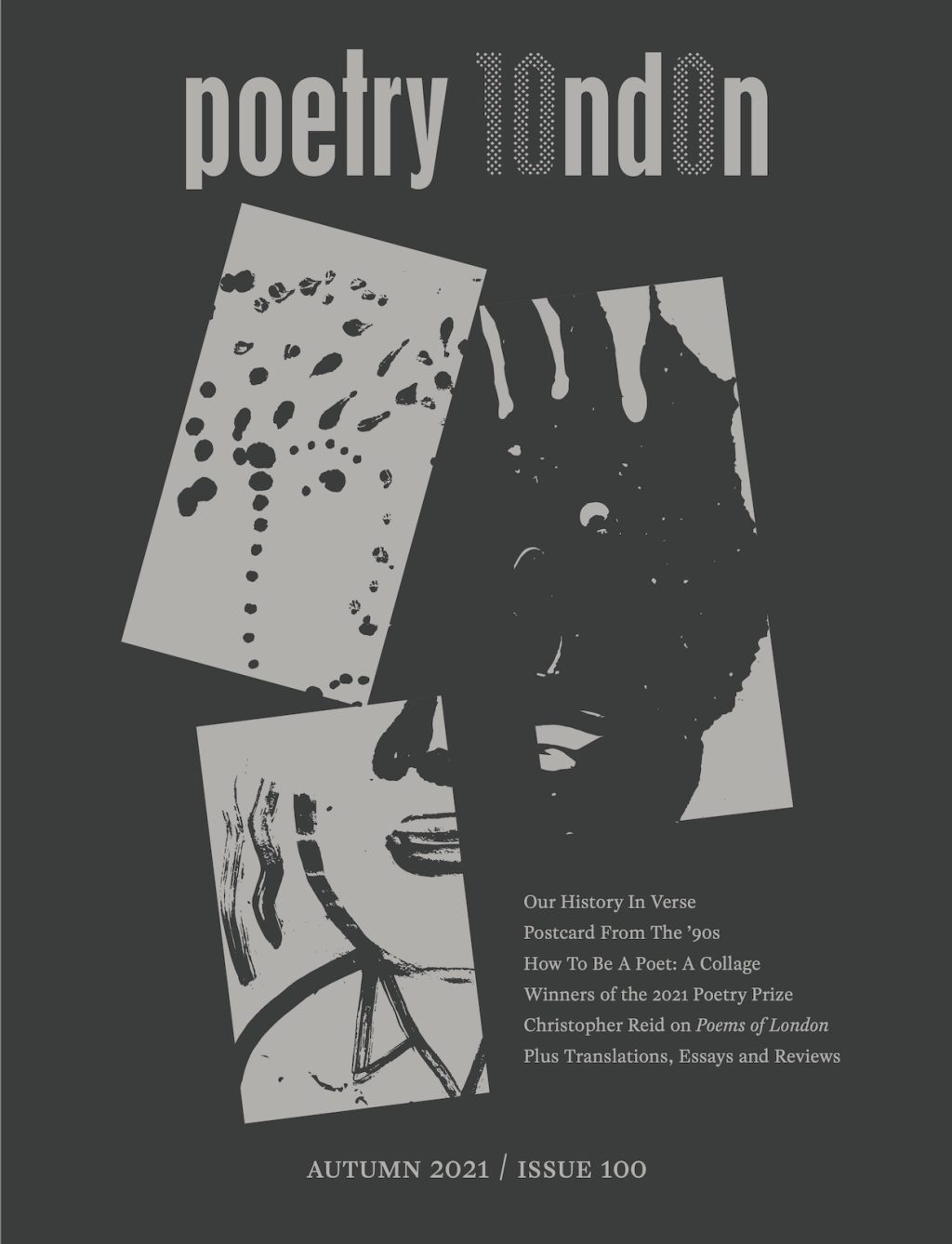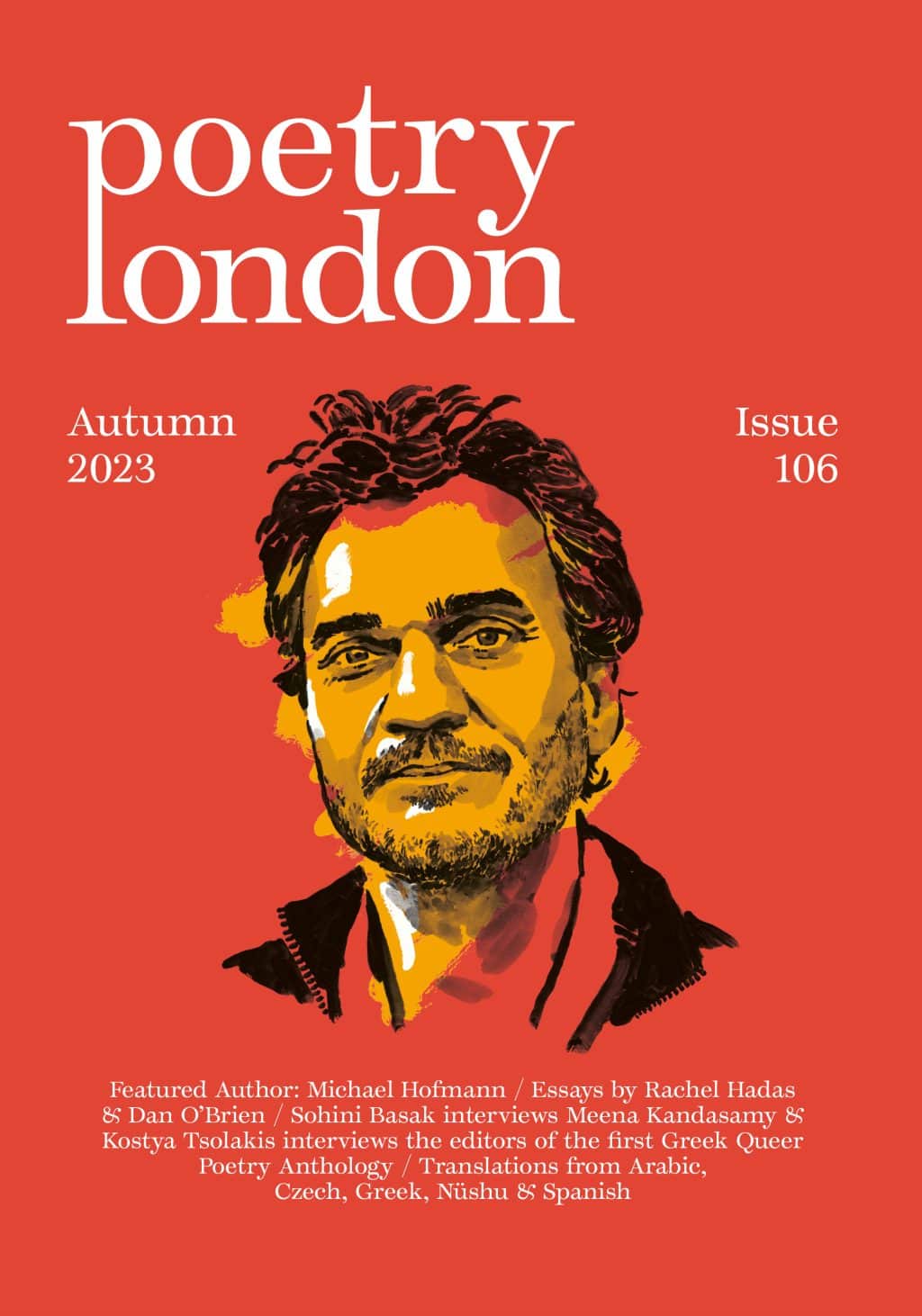(Good) Person Poems
Rory Waterman
Rory Waterman offers a stirring op-ed on the negative effects of superficial do-goodery and inadvertent self-flattery on contemporary poetry and how such tendencies often simplify moral and intellectual complexities to the detriment of the art being produced.
The host lets me into the reading just in time. The little wheel spins and suddenly a huge happy face fills my laptop. ‘Our first reader is the wonderful [X], who has just published a debut pamphlet, Pieces of My Big Heart, with Fuzzy Emotions Press. I’m so excited to see this.’ He puts his hands together and smiles like a cartoonish primary school teacher. Simpsons hand-clap emojis fire off across the screen as it switches to the moving mugshot of a smart-shirted [X], camera slightly off-centre to reveal a Telecaster on its stand, a Velux window framing some foliage, a bit of bookshelf. The poet smiles back, thanks the host, thanks the audience, waves the new pamphlet at the screen, opens it, and settles suddenly into a meditative stare.
‘My poem is for [Y]. They have recently experienced [Z].’
He then follows with some proclamation about equality, leavened with a declaration that he is working class, and another that he can’t speak for communities to which he doesn’t belong. It’s very wholesome.
Good poems have been written about [Y] and [Z], but I quickly discover that this is not one of them, and that the introduction was a perfect précis of the poem. It keeps on coming, simply and solemnly, for the allotted seven minutes, at which point the host once again says how wonderful the poet is, before moving on to the next poet, who is equally wonderful. Messages in the chat amplify the wonder. ‘Thanks’, I write. One should be encouraging. It is nice to be nice. We are social animals, just as we are selfish readers.
I have altered a few details, but they are minor. You have probably experienced something like this several times during the past year and a half of Zoom obligations, and might not have listened as attentively as you pretended to have done. [X] could be any poet invited to do a reading at any point in the history of poetry readings. Hosts are not supposed to show their powers of discernment when introducing poets. Again: we are social animals. [Y] and [Z] are real people and circumstances that do merit attention. The attention the poet has given them is what everyone in attendance already thinks anyway, or at least knows they are supposed to think: the boundaries are often blurry.
In the example that comes most readily to mind, I certainly agreed with the poet, and on some level that has nothing whatsoever to do with poetry. I was glad the poet seemingly cared about these circumstances at least as much as I do. But the poem simply told us that the poet is a Good Person. We learned nothing else from it, and the [Y] presumably went on not knowing that they had had a poem written for them and read out in a leafy London suburb, with the poet placed front and centre as a working-class ambassador with a pamphlet and Twitter profile to promote.
Good Person Poems are usually in the first person, which seemed unfashionable when I started taking a keen interest in contemporary poetry. ‘Why should a reader care about the poet?’, a then-modish poet told me twelve or fifteen years ago. Anyone familiar with my poems will be aware that I don’t tend to agree with this view. In any case, the first person is back with a vengeance, emboldened by the kind of right-thinking that now dominates many corners of arty social media where what happened a couple of decades ago has been forgotten. Its lyric Is might be sages, inquisitors, examiners, but they are rarely flawed beings. After all, it is dangerous to reveal personal moral complexities and inconsistencies: one might be accused of some kind of impropriety. But nobody really wants to read poems that avoid moral complexity, do they? ‘What oft was thought but ne’er so well expressed’ does not mean ‘what oft is agreed with and that is that’. And while I want to live my life to the best of my moral ability, I also don’t want to avoid examining my failures in poems I write about myself.
I recently had a slightly beery conversation with a good friend who also happens to be a good editor. As we talked, he mentioned several poems that had affected him particularly deeply in his youth, and we spiralled out from that point. Douglas Dunn’s ‘Terry Street Poems’ from the collection Terry Street did as much as anything to make my friend fall in love with the art. That is not simply a sequence in which a working-class community is documented and adored; it is quizzical, at times self-consciously othering in its compassion. Tony Harrison’s ‘v.’ spoke to my friend’s own disenfranchisement. In part, it is a poem about meeting your alter ego and realising he is a racist thug so perhaps you might have become one too under different circumstances, about feeling as though you have let down your parents in a way that is inescapable, about moving beyond your working class community and as a result not quite having a community any more, about that community changing and those you love not being ready to accept it, about a nostalgia that implies you might not quite be ready to accept it yourself.
In the sort of quantum leap that occurs in rapid conversation, I then brought up Carrie Etter’s ‘Greek Salad’, one of the outstanding poems from her collection Imagined Sons. In it, the child she gave birth to as a teen and ‘gave up’ for adoption comes back ‘brutally transformed’ as a talking olive; she silences him by swallowing it whole. Then we moved on to Togara Muzanenhamo’s Gumiguru, and in particular the short poem ‘Kubvumbi’, in which the speaker sleeps ‘with a layered peace’ beside his newborn as farmers outside the window curse the floods that ruin their crops. R. S. Thomas’s uncompromising poems after the death of his wife were mentioned next, and then Hardy’s poems of 1912-13. These poems, at least in large part, are motivated by regret, and acute awareness of personal shortcomings. And Hardy led to Larkin: ‘a bastard, but what a poet!’, opined the friend/editor, simplifying in a way that always makes me a little uncomfortable. His evidence? ‘Love Again’, Larkin’s last significant poem, which perhaps does as good a job as any poem can do of nailing personal flaws and demonstrating how unhappy they can leave you. Finally, we talked about Elizabeth Bishop’s ‘One Art’, to my mind the finest poem I know about not quite facing up to accrued losses, which uses its slightly broken repetends to force home like a screw what is, to the speaker, still – at least performatively – ineffable.
A poem, even one that seemingly implicates its author, doesn’t need any of these self-chastising tensions in order for us to respond to it with something more than a nod of moral approval. However, it is perhaps surprising how many have one as their engine, and how few of them would have been written if their authors had fought against the risk of appearing ‘problematic’. Poets who self-consciously avoid that can never appeal to the sense of self-reproach that most of us experience frequently. They can’t speak directly to our constant search for self-improvement either, which is ironic.
All of the poems I’ve mentioned have a huge, knotty tension at their heart, of one kind or another. By refusing the modern, statesperson-like ambition to give voice to a community or simplified grievance, they give voice to humanity. They aren’t resolved, and in fact they can’t be resolved. All of them make me want to cry, or laugh, or both. I carry many of them with me wherever I go, for a good short poem can be taken anywhere whole in a brain, unlike almost any other type of work of art. None can be summed up sufficiently in prose. None is concerned with making me admire the morality of its author, though they display the moral strength of honesty. If you respond to them as I do, as the editor I mention does, it will be because of what they do to you. And, when the seal-clapping has finished and the show has gone on and on, I suspect they will still be remembered.
‘Happiness writes white’, said Larkin (the bastard) in an interview, shortening Henry de Motherlant’s aphorism ‘Le bonheur écrit à l’encre blanche sur des pages blanches’ [‘Happiness writes white ink on a white page’]. That isn’t always true, but usually – perhaps too frequently – it is. At present, sanctimonious certainty frequently writes straight into the notes feature of an iPhone or perhaps a Word doc in black 12pt and is then perfect-bound, bearing the name of one of an apparently endless conveyance of avowedly unimpeachable poets who will not be remembered in two decades’ time when they have succumbed to the ageist cult of newness they seem so keen to embrace. You can apply your own list of poets to this, and I invite you to wait and see which of them will still be read twenty years from now. The best poets of any age challenge that age, but they are also not afraid to challenge themselves.


